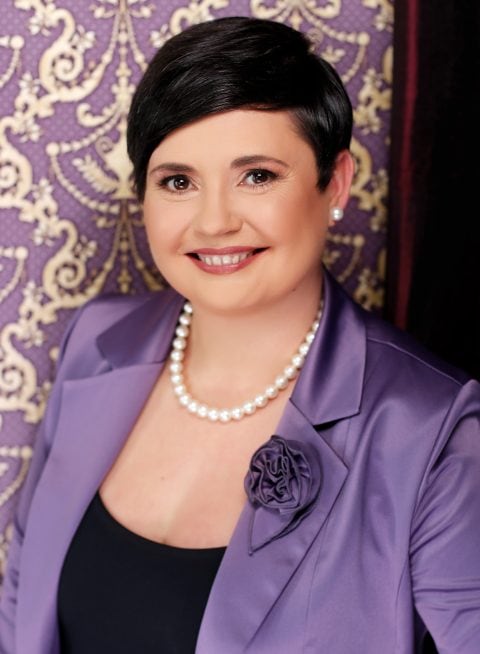The Context
I met Nadia, the newly appointed CEO of a large corporate organization in Romania, through a common acquaintance. My friend, an HR executive, told me: “She is struggling. Perhaps you two should talk.” And so, we talked.
“I never could have imagined how challenging it would be to return back home. I mean, the very word home should inspire a sense of safety and well-being, no? But this is not the case. Every single day I feel like I’d like to pack my things and move away as far away as possible and as fast as possible,” she told me.
Listening to Nadia I could feel my own emotional triggers getting activated.
Various sources place the numbers of Romanians who emigrated abroad after the fall of communism between 4 and 7 million people. Like many others, I, too, left Romania in 2004 when I was only 23. I had to figure it out on my own how to become a journalist and how to craft a career and a life for myself in a foreign country. So I knew that, if I were to work with Nadia and to serve her well, I needed to hold my own emotions in check.
The First Step
The first thing that we needed to do was to identify the cause of her emotional turmoil.
“I feel pain when I look at every stray dog I see in the street, at every pile of garbage, at every bump in the road. Then, I head people complaining and looking for scape goats. It’s always other people’s fault – it’s the politicians or the leadership, but never their fault. This typically Romanian fatalism is driving me crazy,” she said.
One more aspect that would add to her turmoil was a strong superposition between Romania and her family of origin. Now that she was “back home,” her family expected her to reintegrate naturally into all social functions, from afternoon barbeques to weddings, baptizes, and other family rituals. “When the heck am I supposed to find time for all of that? When I have a bit of time all I want is to rest. And, honestly, I can’t stand being among those people who are constantly judging me. You haven’t married yet? How much do you earn? These are usually some of the first questions I get during our family hangouts – and I’m sick and tired of it.”
We needed to acknowledge Nadia’s turmoil and to normalize it. In a way, returning to our country of origin after a long time abroad is like moving back to our parents as an adult. While it may make sense initially for various reasons, this will never be an emotionally simple process.
The Second Step
Besides the obvious upset, the even greatest challenge that Nadia was facing was that her emotional turmoil was starting to spill into her CEO work.
No matter how much she tried, her bitterness would creep into her voice during stakeholder meetings. We knew that we needed to act at both levels – her CEO communications, and her emotional set-up. And we needed to act fast.
The first thing we did was to map her communication opportunities – both external and internal.
We also went back to why she loved being a CEO. We looked at the business in the bigger picture. “If you were running this same company in Bulgaria, Germany, or Spain, what would be different? What would you see, what would you do? How would you go about it?”
Gently, we started crafting more thought-through, compassionate messages for her stakeholders. We shot them on the camera and Nadia was tasked to review them and improve them on the go.
By shifting her focus from Romania to the business that she loved, Nadia was now more able to tap back into her visionary, inspirational leadership.
What we were actually doing was that, little by little, we would take the elevator from Nadia’s amygdala to the rational, strategic part of her intellect. Several times I saw her smiling. Nadia was slowly reconnecting with her bigger vision and her greater impact. Ultimately, this was about the business as much as it was about the business operating in Romania. Nadia started feeling much more confident in her chances of succeeding in her new role.
The Breakthrough
But taking an aspirin for a headache is never the solution for deep dehydration. So, sooner or later, we needed to get to the real root cause of her emotional turmoil.
In the first phase, we identified all the painful memories Nadia had connected with Romania, which got reactivated after her relocation. She shared stories from her past, and I listened. We both cried. Thus, the past got a chance to relax and to stay in the past.
We then had to look at the big elephant in the room: her relation with her family of origin. When she left Romania, Nadia was a young university graduate; she came back a CEO. But her family never got the chance to experience her transformation, so unintentionally they were treating her as the one she had been when she left, not the one she was today.
We identified healthy ways and means of communication with each family member who mattered to her. We identified the boundaries Nadia wanted in place and how to hold on to them no matter what. We basically identified the “re-education” strategy that Nadia needed to enforce in relation to her family of origin, so a relationship can become possible in terms of where she was today.
The Resolution
As we were moving through the process, you could see Nadia’s weight lifting from her shoulders.
Her renewed sense of empowerment was palpable. This was the crux of the matter: when she left Romania, Nadia felt powerless; now, after coming back, her powerlessness got reactivated. By regaining her empowerment in relation not only to her role, in which she was brilliant, but to the social dynamics that were familiar yet painful to her, Nadia shifted her perspective.
She managed to turn returning “home” into a journey of exploration. She became curious about what could become possible when she continued exploring. She became more grateful about using her native tongue in corporate communications and the type of humor that only Romanians could understand and that now came handy for her communications. By shifting into more empowerment, curiosity, and gratitude, Nadia could finally relax. And her relaxing could be felt by anyone in her company.
Returning to your country of origin as the CEO after years spent abroad doesn’t have to be as flawless as you would expect it. A massive cocktail of emotional triggers may get activated, which could get in the way of your wise decision-making and communications. Thread carefully; not everything that is familiar must go down smoothly and pain-free for you or for those around you.



